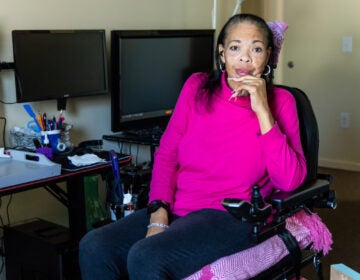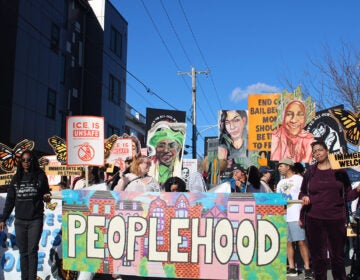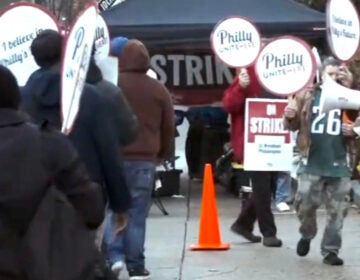Gathering in Philly confronts violence claiming African-American men, youth
The numbers are staggering. Thirteen black males are killed every 24 hours in the U.S. One in three black men can expect to spend some time in prison during his lifetime. Seventy percent of K-12 students arrested are black or Hispanic.
A string of black male deaths at the hands of police officers over the past year have called into question the relationship between communities and their cops.
On Wednesday, the second annual Cities United convening, Mobilizing for Change, kicked off in Philadelphia, bringing together officials representing at least 75 cities from across the country to discuss how to stop the violence harming African-American men and boys.
Mayor Michael Nutter opened the convention with an impassioned speech, calling city officials the real representatives of the people and chiding Congress for not doing more to make the streets safer.
“As mayors and local officials, we can’t wait for them to get it together while our young men and women die in the street and have challenges and barriers placed in front of them that only people in Washington could craft, who have no responsibility ever for implementation,” said Nutter.
“We have real responsibilities,” he added. “We’re running a business enterprise, we’re running a government. All they’re doing is running their mouths.”
Human rights organizer and Cities United Youth Subcommittee Lead Jamira Burley took a softer, but no less passionate, approach during her opening remarks.
Echoing the death of Baltimore resident Freddie Gray and the community violence that resulted this week, Burley urged the audience not to waste time in finding a solution.
“We must use this moment to listen, learn and for fellowship,” said Burley. “Because, otherwise, this time next year, we’ll be burying another young man and asking ourselves what could we have done different?”
The conference then shifted into a panel discussion of why race matters, particularly in the areas of community and education.
Panel member Dr. William C. Bell of Casey Family Programs spoke about the idea of living up to the successful black men who “make it.”
“We cannot confuse progress with perfection,” said Bell. “We have made considerable progress, but we have a gap in the preparation.”
“What we have to do in this nation is understand that we get strong when your family is strong,” continued Bell. “We get strong when your school systems are strong. We get strong when the mentors in your communities are strong. And when your mentors are Pooky and Ray-Ray, we’ve got some challenges. We can overcome them, but we are far from perfection.”
Damon Hewitt of the Open Society Foundation said he sees a strong correlation between racism in communities and in schools.
He told the story of a two high schools in the Mississippi Delta, one all-black and one all-white. A black girl was suspended for five days, then sent to an alternative school for 45 days for bringing a cell phone to school despite a rule against it.
When asked what he would have done, the all-white school principal said he would have simply confiscated the phone. The all-black school principal saw his decision as a way of maintaining control of the children.
Both principals were black, Hewitt said.
“Sometimes, this socialized disdain for black children, boys and girls, it’s a disease,” said Hewitt. “It permeates all of us. We all have this internalized racism, and until we start working on that our schools, police departments and communities won’t be different.”
The Cities United meetings continue through Friday.
WHYY is your source for fact-based, in-depth journalism and information. As a nonprofit organization, we rely on financial support from readers like you. Please give today.




